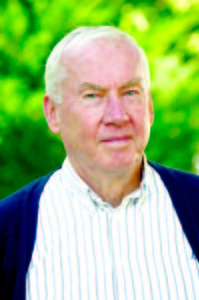Small World: Wordsmiths to the rescue
By Henry Precht
BN Columnist
A friend of mine, one who had risen through the ranks from bottom to top, once said, “I never delivered a speech I wrote and I never wrote a speech I delivered.â€Â That sentence almost certainly could be spoken by most of our national politicians today.
In fact, who was the last president who wrote his own speeches? Probably throughout the nineteenth and early twentieth centuries, preparing your own texts was considered a normal part of the job. Some relished it, as, for example, Theodore Roosevelt. And, naturally a former college president, Woodrow Wilson, wouldn’t trust an underling to formulate presidential thoughts.
Skipping lightly over the unmemorable 1920s, enter Franklin Roosevelt and with him a “brain trust†eager to put their (conflicting) ideas on the presidential lips. From then on the podium belonged to the speechwriters. Presidents stood aside, only flourishing a red pencil in the margins from time to time.
So, we come to the present president. Whereas 50 years ago our chief executives had gotten by with a handful of aides at peak employment, now there are said to be 600 men and women filling jobs in the White House. Everything, I suppose, from a division of foreign affairs specialists divided geographically to a collection of joke writers specializing in insults while other experts practice self-deprecation
I remember in days of yore drafting an annual paragraph or so on whatever I was dealing for the state of the union — nary a syllable of which ever sullied a presidential lip. Nowadays, with the White House busting at the seams there would appear to be little need for such chores by the various departments.
Can you imagine the difficulty faced by executive office supervisors (if there be such in fact) when their young, ambitious, competitive, creative underlings put their minds to fashioning policy for the nation? Some presidents seem to think that the FDR model of hiring thinkers of clashing opinions gives the chief executive the creative freedom to make choices from the wide range of options his staff thinks up. Some, e.g. Carter, believed — to their later regret — that they could manage and benefit from the strong personalities in collision. Ha! We shall learn when the memoirs are published next year if and how Obama fared in this internal jousting.
Let us imagine ourselves in the White House, assigned the task of coming up with some memorable words for a farewell address. Something like Washington’s “Avoid entangling foreign alliances,†or Eisenhower’s “Beware the military-industrial complex†(someone said the adjective “congressional†was edited out as a third component). As an exercise, let us come up with words that all will agree are wise, necessary, lasting and founded on actual experience. But not too upsetting (at least not to key donors.)
How about, “Eschew nation-building?†If a nation is to be built, it had better be done by the citizens, who are going to inhabit it and will know how to make the inevitable needed repairs.
Or warning of another lesson, painfully taught by recent events, “Decline to pursue regime change.†Think how much happier might be the Iraqis, Afghans, Syrians and Americans if we had left them to form their own respective fates rather than to outfit them with an ideology made in Philadelphia or Cambridge. “Let people make and suffer from their own mistakes,†however, doesn’t sound like a message Moses would bring down from the mountaintop.
There’s no rule that says a president’s final words need focus on foreign affairs. Plenty of opportunity for domestic inspiration and instruction. “Cool it with global warming†will never make it to memorable mention, you can be sure. “Walk or peddle; don’t gas up,†could pass. I prefer, though, “get the money out of politicsâ€
Or Stonewall Jackson’s final words, “Let us cross over the river and rest under the shade of the trees.†(But, you can be sure: before we might start wading in the river, some bright young thing with a red pencil will come up with a jazzier version as a substitute.)
Henry Precht is a retired Foreign Service Officer.



